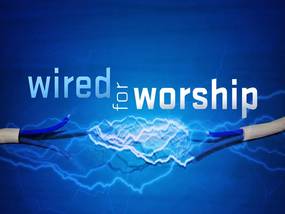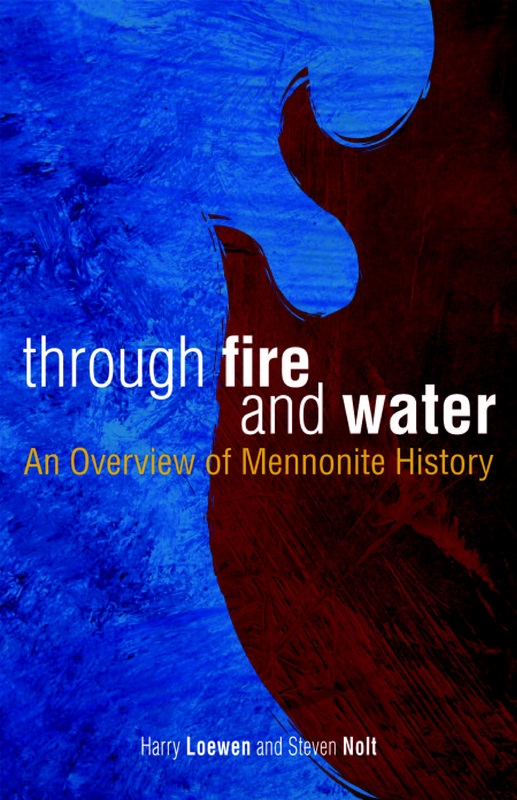 What do you think of when you hear the word worship? Music? Church Service? Sunday Morning? Worship is too big to confine to an event or activity. British New Testament scholar and retired Anglican bishop Tom Wright says this about worship, “‘worship’ means, literally, ‘worth-ship’: to accord worth, true value, to something, to recognize and respect it for the true worth it has.”* In order to declare God’s worth, worshipers have to know the worth of God; to know the worth of God, the worshiper has to know God. This Sunday Jon Wenrich will begin a new sermon series call Wired for Worship. God created every person to declare His worth. Sadly, we often misdirect worship on to other things, people, and (most pitifully) ourselves. In this series of messages, we will see that God created the universe so that it would display the worth of his glory. Then He created us so that we would see His glory and reflect it by knowing and loving Him. We can express worship in various forms but the heart of the worshiper determines the acceptability of his or her worship. Since worship ushers us into the presence of God, we must approach Him in reverence and awe. It is not a one time a week function; rather, it is a deliberate act of recognizing Him and entering into His presence every day. Don’t forget to come early this Sunday for coffee and doughnuts at 8:30. It is a great time to catch up with others before Sunday school. * Wright, Tom, For All God’s Worth. London: Society for Promoting Christian Knowledge, 1997.
0 Comments
On February 28, our Bishop J. Carl Sensenig started our current sermon series Peculiar. We explored a number of Biblical understandings that early Reformers and Anabaptists insisted were necessary for faithful Christian living. For many of us, these “peculiar” doctrines or beliefs just made sense in light of the Bible. This Sunday marks the conclusion of this study and what a great way to end—with the Lord’s Supper.
Some people wonder how they can learn more about some of the doctrines and beliefs we studied. Let me share with you some of the resources I used while preparing for the messages I preached. First of all, the series was born out of J.C. Wenger’s book What Mennonites Believe originally published in 1977. Wenger was a historian, writer, teacher, and theologian. I’ve appreciated many of his works over the years. In fact, in my message God Loves Through Us, I leaned heavily on Wenger’s book The Way of Peace. Both of these books are well written, easy to read, and short. I commend both of these books for those looking to explore Anabaptism more. Another great book, which is sadly no longer in print but was so important in my understanding of non-resistance, is Nonresistance and Pacifism by John R. Mumaw. In this short 1952 publication, Mumaw differentiates between nonresistance and pacifism, making it clear that we are the former not the latter. On this same topic is Robert G. Clouse’s book War: Four Christian Views. Herman A. Hoyt and Myron S. Augsburger make some nice contributions to the book, both outlining a distinct view. One other strange book that has helped shape my understanding about nonresistance is Dispensationalism by Charles C. Ryrie. This theological book helped me reconcile all the wars in the Old Testament with Jesus’ teachings of peace and love in the New Testament. Although, unless you like to read difficult books or you have a college course on it, I would not suggest spending time reading it. If you want to learn more about Anabaptist history, Through Fire & Water by Harry Loewen and Steven Nolt, is filled with great stories spanning centuries of Anabaptism. Of course, John Roth has some books related to Anabaptist history, beliefs, and practices, which could prove helpful for some. Lastly, my go to book when it comes to Anabaptist theology is Doctrines of the Bible by Daniel Kauffman. Stop by Ken’s Educational Joys in Hinkletown to procure a copy for yourself. It does not need to be read as a book but as a study resource. Instead of flipping through a magazine to some random article, open up Doctrines of the Bible and read a short section or two about Anabaptist theology. I look forward to sharing in the Lord’s Supper with you this Sunday! This Sunday is a very important day in the life of our congregation. Nothing is as exciting as baptizing those who have decided to follow Jesus. Believer’s Baptism is one of the “peculiar” beliefs that Anabaptists embrace. In fact, early Anabaptist lost their lives because of this doctrine.
The message will be on the short side this Sunday since we will take time to hear the testimonies of those being baptized. One thing that I will not be able to emphasize adequately is the significance of the Holy Spirit’s inner work implied through baptism. Paul Zehr says in the Believers Church Bible Commentary on 1 & 2 Timothy: Sixteenth-century Anabaptism strongly emphasized the work of the Holy Spirit in Christian conversion. In Anabaptist thought, the inner work of the Holy Spirit first brings about regeneration. Regeneration or birth by the Holy Spirit is expressed outwardly in water baptism. Anabaptists talked about three baptisms: of the Spirit, of water, and of blood (martyrdom). Water baptism, or believers baptism, which followed inner Spirit baptism, was for them an outer mark of an inner change. The baptized church was the visible gathering of the inwardly regenerated. What we celebrate this Sunday is something that has already taken place in the lives of those being baptized. When they decided to follow Christ, asking Him to forgive and cleanse them from their sins, the Holy Spirit took up residence in each of them. The Apostle Paul reminded the Corinthian Church: “Don’t you realize that your body is the temple of the Holy Spirit, who lives in you and was given to you by God? You do not belong to yourself, for God bought you with a high price. So you must honor God with your body (1 Corinthians 6:19–20, NLT)” The Holy Spirit lives in all who belong to Christ. He empowers them to live God honoring lives. What an amazing reality! See you on Sunday! |
Eric MarshallBorn in Reading, Pennsylvania, Eric grew up in the little town of Gibraltar, PA with his grandparents. He met his wife Cheryl while working at Good’s Greenhouse in Bowmansville, PA. He has three adult children and values watching them grow into the people God wants them to be. Archives
August 2023
Categories |






 RSS Feed
RSS Feed